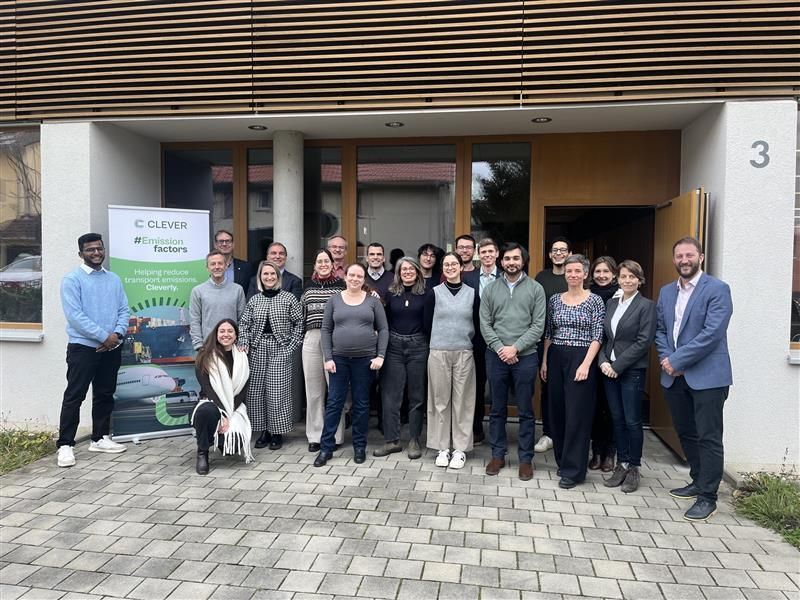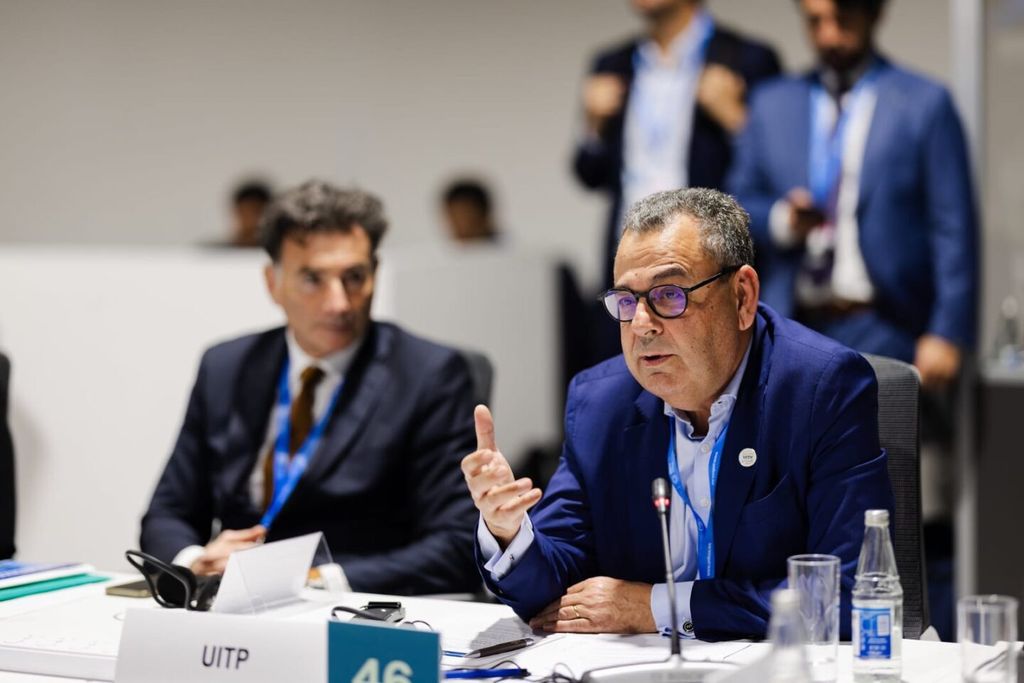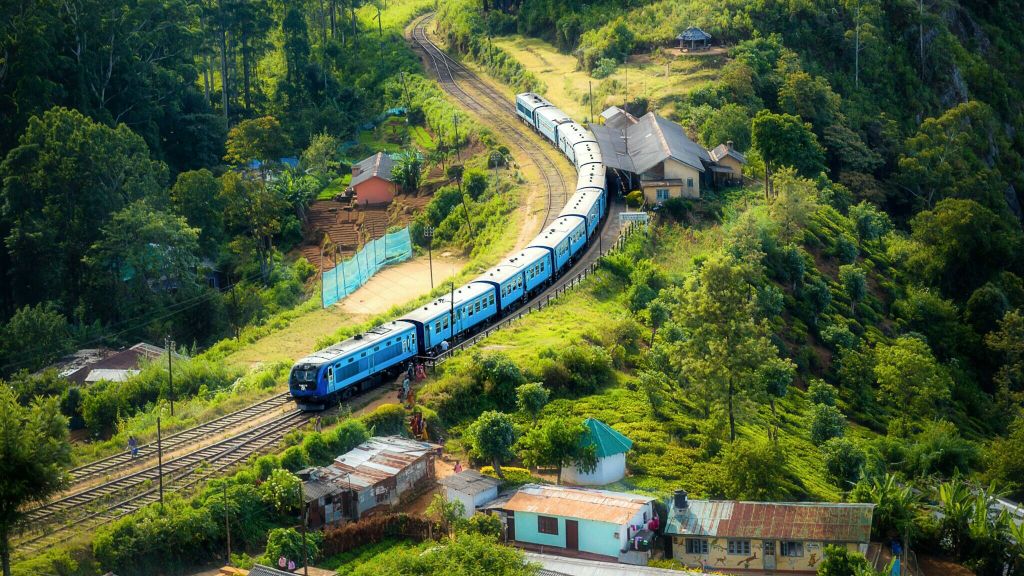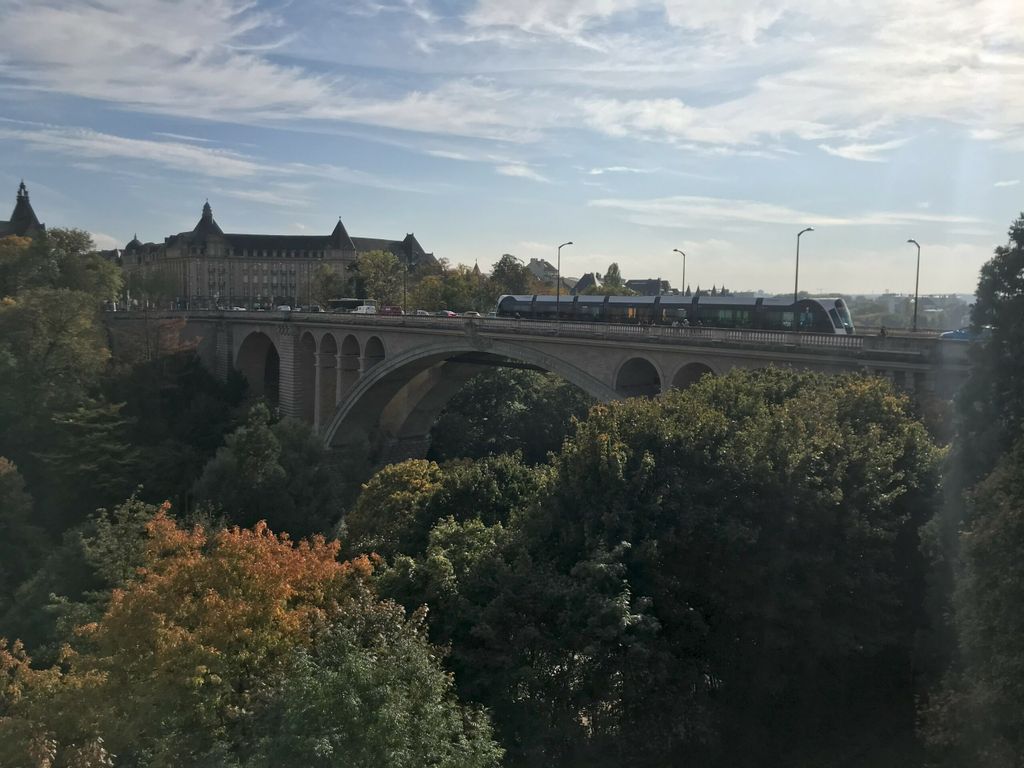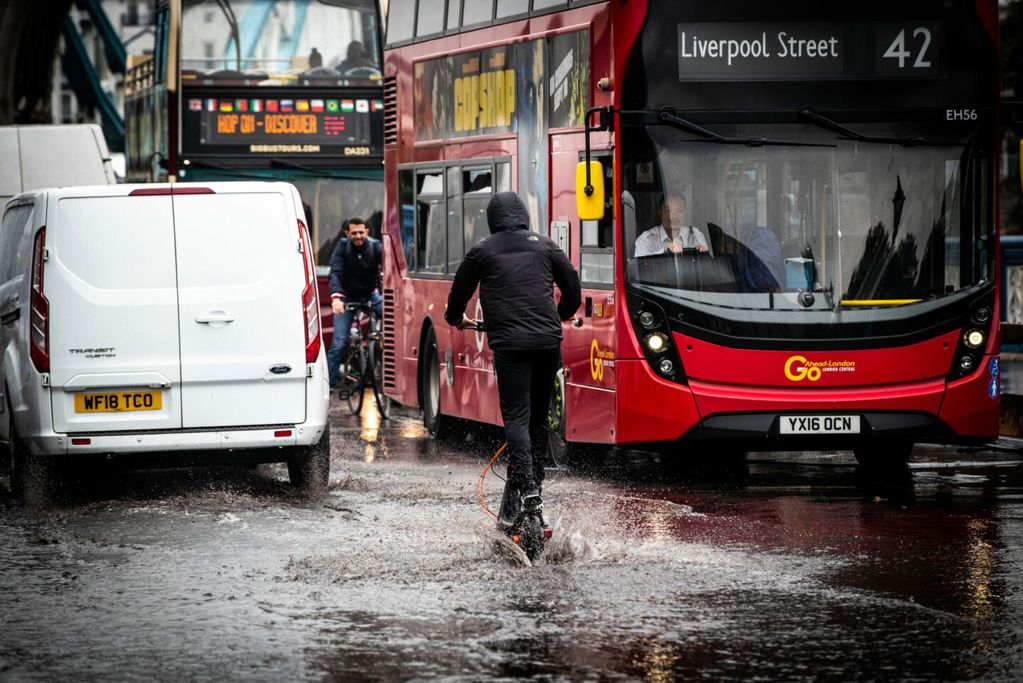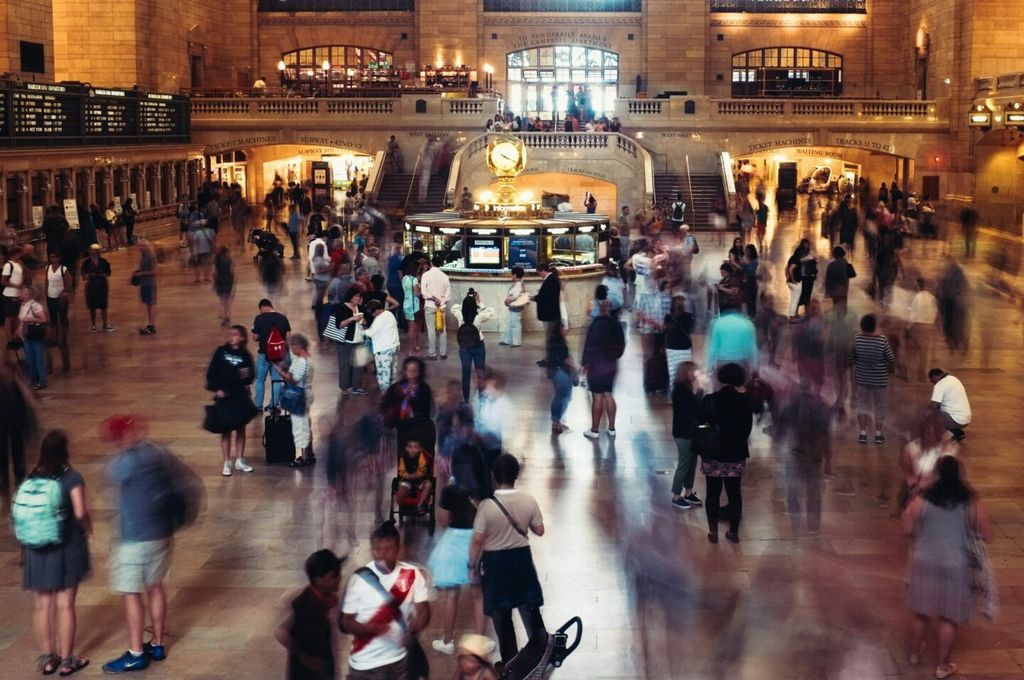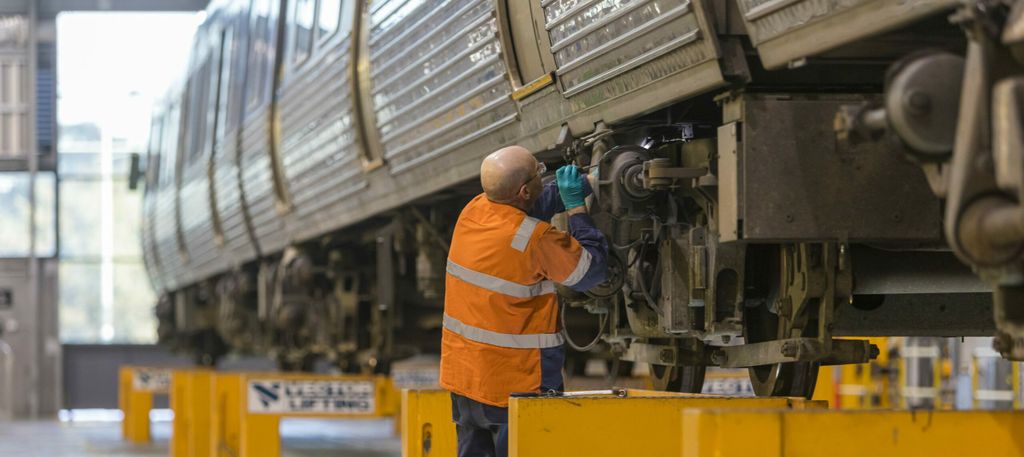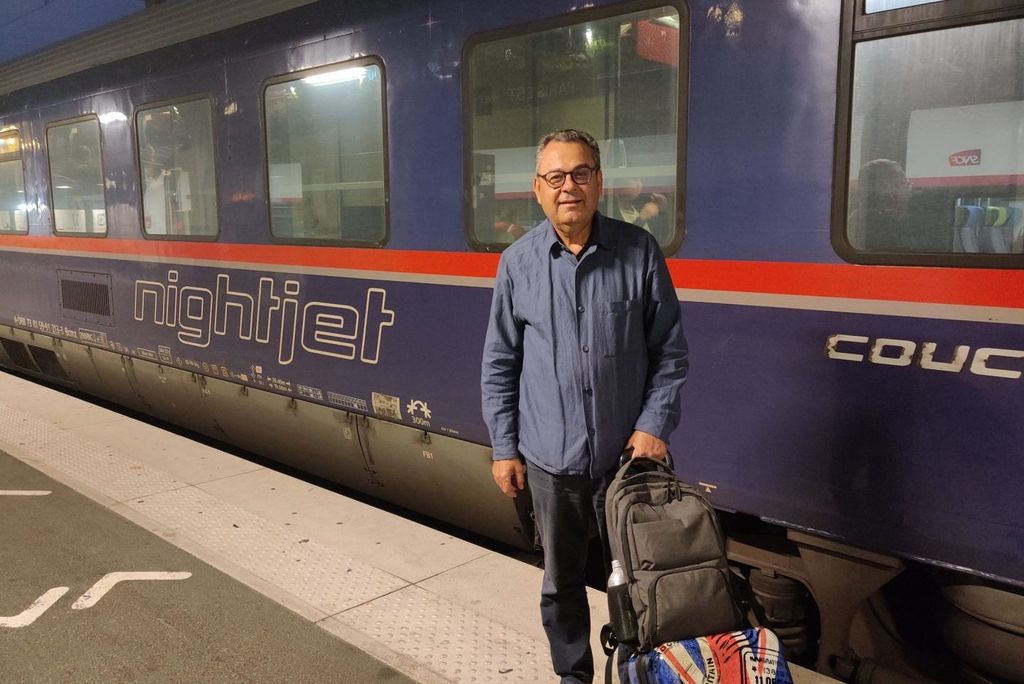
Walking the talk of decarbonisation: Mohamed Mezghani
UITP Secretary General Mohamed Mezghani reflects on his European travels
Covid has changed our relation to mobility. We had to stay at home for several months, work remotely and carry out many activities virtually. Also, the climate emergency questioned our travel behaviour making us more concerned about our carbon footprint.
Like me, many people are living a contradiction: how to work in an international environment requiring global travel while reducing our impact on the environment. It starts by questioning if each trip is needed. Then if this is the case, we choose a sustainable mode of travel as much as possible.
With this in mind, I decided to take the train from Paris for important meetings in Lyon, Barcelona, Brno and Berlin during ten days. It would have been easy to do that by air but I also wanted to show that it’s possible to move by rail for long business trips and that it’s not a waste of time.
I have a clear conscience.
The first leg of my journey was to Lyon. Paris-Lyon is certainly one of the busiest rail connections in Europe. It covers almost 500 km in two hours with the TGV high speed train which just celebrated its 40th anniversary.
In Lyon, attending the general assembly of the French Association of Transport Authorities offered me the opportunity to talk to the French Transport Minister Clement Beaune. I was surprised to hear him say that his target is not the car in general but specifically cars with an internal combustion engine. I wanted to challenge him. Regardless of whether they are zero-emission, we need less cars.
For @CBeaune French Minister of Transport ‘The target is not the car but the individual use of polluting cars’ … Sorry but a clean traffic jam is still a traffic jam. We need less cars.#MovePeopleNotCars pic.twitter.com/DWJkZsmvYu
— Mohamed Mezghani (@MedMezghani) September 14, 2022
Last time I took the train from Paris/Lyon to Barcelona was in 2019. It was half full. This time there’s not a single seat left.
Actually, there are even people standing between coaches. I am happy to see I am not the only one who changed his habits. The climate urgency and the energy crisis have encouraged people to opt more for sustainable solutions.
In Germany, the monthly 9€ ticket has led to record numbers of travellers by rail and public transport. But the modal shift was below expectation. Spain introduced free rail transport on suburban and regional trains till the end of the year. Recently in France, the boom of private jets used for short flights that would take a couple of hours by train has led to very controversial discussions on the media and between members of the government.
This is very good as it puts public transport and rail on the political agenda. Then, it’s to us, sustainable mobility advocates, to seize the opportunity and increase awareness on the benefits of public transport.
By accident of calendar, I met the President of Renfe, the Spanish National Railways, in Barcelona. I told him about my journey from Lyon on ‘his’ train. He said ‘we are proud of this rail link between France and Spain’. I am proud too to have travelled by train. And reading the numerous comments I got on social media, I am encouraged to do it more.
Actually, I realize the privilege to live on a continent with such a large railway network and fully understand those who envy us because they don’t have this opportunity.
Bright Light of the City
Barcelona was an important stop. The city will host the Global Public Transport Summit in June next year. I was there for the launch event. It was good to see such strong commitment from UITP partners and members in Spain.
This Summit will be the largest ever since the creation of the association in 1885. What an honour to inherit such a legacy and make it live and grow.
This business trip across Europe had a break in Paris where I participated in the rail festival ‘Des Rails et Vous’ organised by OUAT (Once Upon A Train). The organisation promotes rail transport not only as a way to move but as a lifestyle where the trip itself is as important as the destination.
I am a proud member and volunteer for the festival and recognise myself in its vision of travelling: slow, fun, sustainable and positive. I liked welcoming people as much as I enjoyed being part of a panel discussing how rail transport can attract more women in its workforce and management, another topic close to my heart.
All this happened during the car-free day. It looks like it’s not easy for me to distinguish professional topics from personal interests.
Aujourd’hui je suis agent d’accueil chez @OUAT_train pour le festival Des Rails et Vous. Je vous attends à @Gro_ndControl pic.twitter.com/oPPM0VZGgB
— Mohamed Mezghani (@MedMezghani) September 17, 2022
Going to bed in Paris and waking up in Vienna was a great experience. My bedroom was on the Nightjet which started this service less than a year ago. Interesting to see that almost all passengers were Austrian, may be because it’s a Sunday evening and those are tourists who have visited Paris.
The night train is not a popular mode of transport for business travellers yet. For me yes. My cabin was very comfortable and the catering of good quality. It’s my third journey on a night train in less than a year.
People interact differently with each other on a night train. They communicate more spontaneously because they will share the same ‘room’ or are neighbours for the night. You feel you’re companions, you feel it in this knowing smile on the faces.
The night went well, rocked by the train’s roll. I woke up early and enjoyed the green landscape while crossing Austria. I could work too with the laptop on my lap on the sleeper.
My #train journey accross Europe continues … I sleep in #Paris tonight and will wake up in #Vienna tomorrow #NightJet pic.twitter.com/9GlvR06Oas
— Mohamed Mezghani (@MedMezghani) September 18, 2022
From Vienna to Brno, I was surprised to see the train crossing vineyards. I learned later that this region, South-Moravia, is well known for its viticulture which dates back to the roman period. White wine is particularly appreciated in Brno. I could witness it at the dinner of the European Urban Mobility Days.
This event was an opportunity to take stock of the challenges faced by cities in the mobility field in the current context still impacted by COVID-19, by growing inflation, the energy crisis, the shortage of staff and the decarbonisation urgency, not to forget the war in Ukraine.
I had the opportunity to emphasise the need to support public transport which is and should remain the backbone of urban mobility. We need to end the domination of cars and put people at the heart of urban mobility policies. I hope I played my role of spokesperson of the public transport sector in this event led by the European Commission.
During this trip I could experience the diversity of experiences that a train could offer. It could be a living room where you relax reading a book, listening to music or watching videos on your tablet. Or an office where you work and participate in on-line meetings. Or a bedroom in a night train in one of the sleeping cabins. Or simply a meeting place or a coffee shop where you chat with your neighbours. This multiplicity of functions is unique. Neither cars nor planes can offer the same experience.
From Brno, I took the train to Prague where I changed train to Berlin. The journey from Prague to Dresden is one of the most beautiful I’ve ever had. It goes along the Elbe river and crosses breath-taking landscapes.
I had my first lunch in a real dining car after many years. There’s no such service in France anymore but it’s very common in other countries like Germany, Switzerland or Czech Republic. They even serve draft beer in a proper beer glass. I like the red armchairs, the white table cloth, the lamp on the table… there is a nostalgia that emanates from this atmosphere.
I have seen that in movies but I am not used to it in real life. And what makes the experience unique is that you share the table with other passengers which offers the opportunity to interact with them.
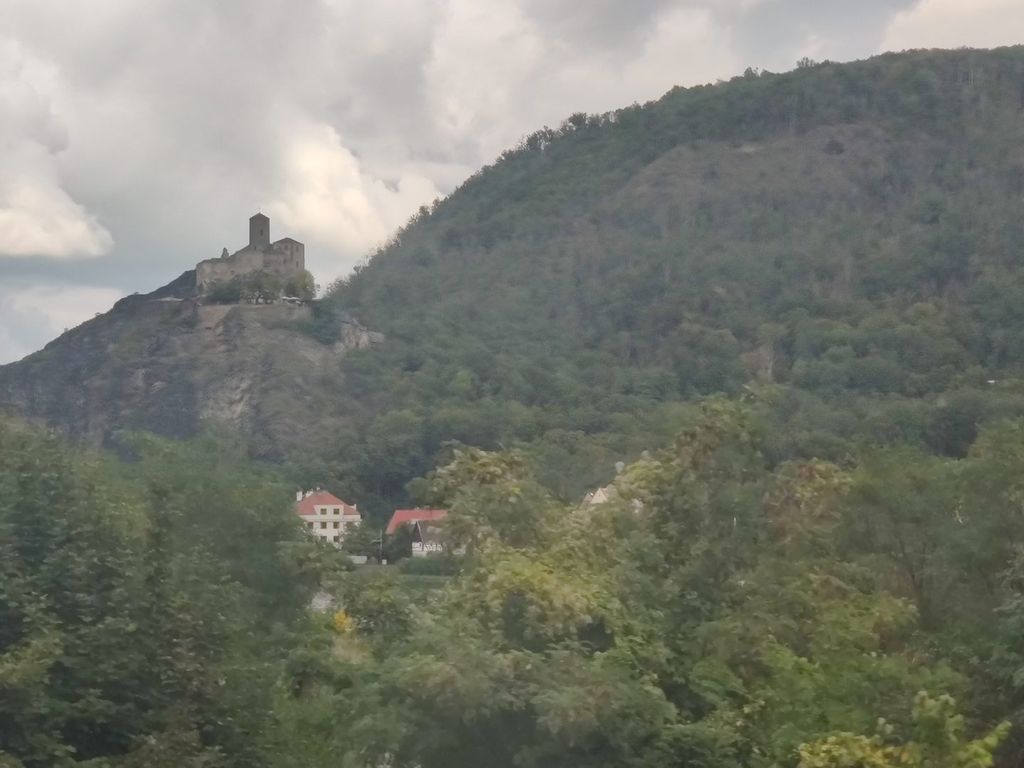
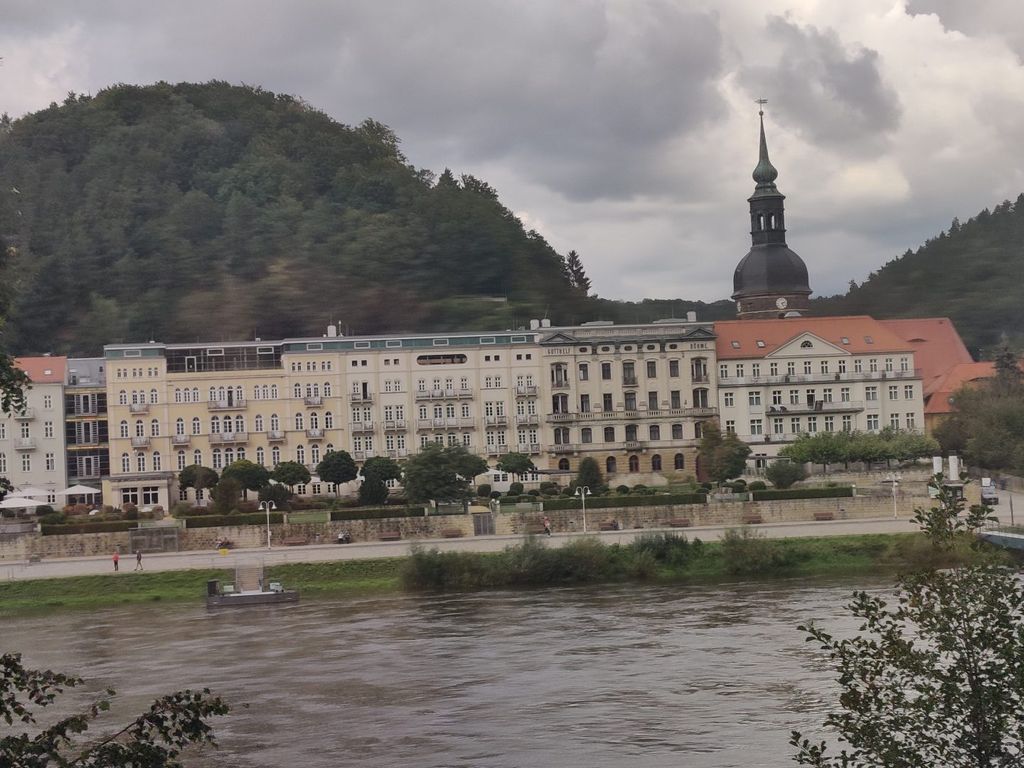
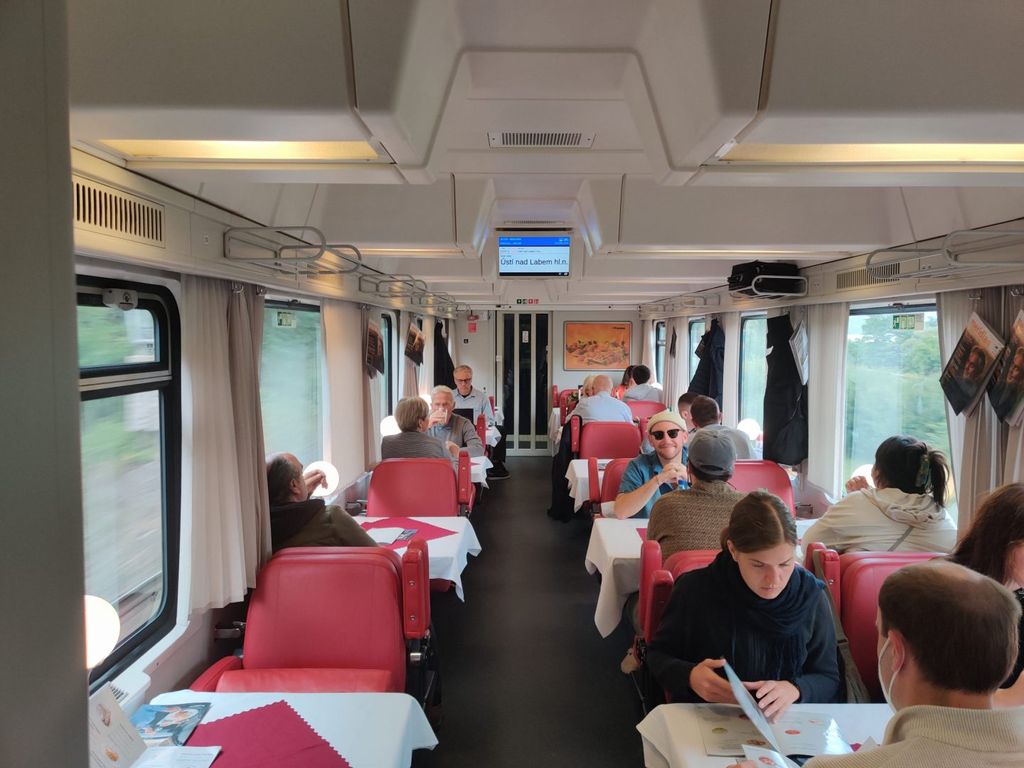
Berlin is one of the world public transport capitals. I love its yellow metro and the integrated services connecting all areas of the region. Its barrier-free metro and suburban train networks are open and welcoming. Moving in Berlin is so convenient and easy!
This week in particular Berlin was a kind of holly place for rail aficionados from all over the world converging all towards Innotrans, the rail fair. Good to catch up with peers and UITP members, some of them I haven’t met for 3 years.
What is challenging is that most of them are men: public transport is still a men-dominated industry while most travellers are women. In this context of shortage of staff, the focus should be on attracting women. Everyone would win including travellers of whom expectations will better taken care of. If it’s good for women, it’s good for everyone.
Looking at the crowd in @InnoTrans you realise even more that #rail transport is a male dominated industry. We need a more diverse #staff to better answer the expectations of the #diversity of travellers.#GenderBalance#DiversityandInclusion pic.twitter.com/QzpdFg0Xsy
— Mohamed Mezghani (@MedMezghani) September 22, 2022
On the train back to Mannheim I opted for the living room. I wanted to relax after a busy board meeting in Berlin. I sat and read a book while listening to acoustic music. It’s a quiet atmosphere around me: people are either sleeping or on their smartphones, other are working. I don’t see anyone talking to their neighbours.
I like traveling in such atmosphere after busy days: it’s time to think, relive some moments of the week spent traveling and meeting people, realise how much they inspired you, project myself in future activities, dream, be grateful for the luck to travel freely and do things I love.
But everything is not perfect. I had to come to reality on the ground: because of a delay I missed the connection in Mannheim with my very last train of this journey. It was the last one of the day and it left only five minutes before. So, no choice than waiting there until the day after. I heard a lot about the delays in Germany and now I am experiencing their consequences.
Nevertheless, DB staff immediately took care of the twenty+ travellers in the same situation: they arranged the hotel night and rebooked trips for the day after. Talking to the reception desk at the hotel, I discovered that they host delayed DB travellers every evening. These delays are mainly due to an aging infrastructure that needs renovation. This is impossible without government support.
I write these last lines in the train leading me to Paris after a ten-day journey across Spain, France, Austria, Czech Republic and Germany. Ten days which offered me the opportunity to experience different rail solutions: from tramways to metros to suburban rail to high-speed trains.
I liked the variety of activities you can have on a train, the diversity of people you meet, the multiplicity of landscapes you can enjoy, the dedication of the staff to make your experience a positive one.
Traveling by train, or by public transport in general, is acting responsibly. It’s walking the talk of decarbonisation, inclusive society and economic prosperity. Nowadays it’s becoming an act of resistance against those who play the game of lobbies pursuing purely political or financial interests that are damaging our environment, our cities, our ecosystem.
History shows that resistance always wins. It’s a matter of time, but there’s no time to lose.
For the whole journey, air transport would have emitted 28 more times of CO2 than rail. I saved 500 kg of CO2 which is about 25% of the estimated carbon footprint per year and per person in order to comply with the 2°C target.
Source: ADEME (French Agency of Environment and Energy Management)
Membership benefits

